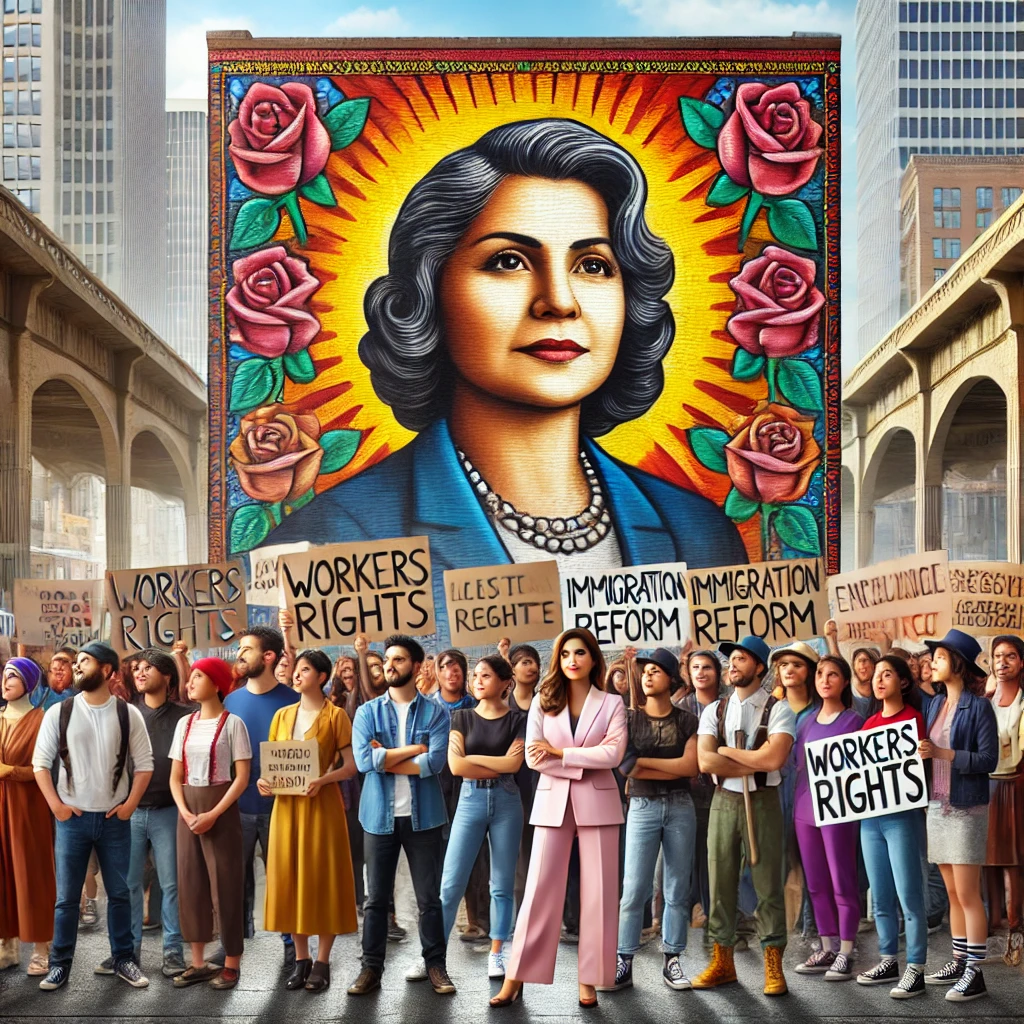Luisa Moreno is a name that stands tall in the history of civil rights and labor movements. Born in Guatemala in the early 20th century, Moreno became a significant figure in the fight for workers’ rights and the civil liberties of marginalized communities, particularly among Latino immigrants in the United States. Her efforts in organizing labor strikes, advocating for gender equality, and promoting unity among diverse workers make her an influential historical figure, whose contributions remain relevant today.
Who Was Luisa Moreno?
Luisa Moreno, born Blanca Rosa López Rodríguez, grew up in a privileged Guatemalan family. However, as she witnessed the inequalities faced by the working class, especially women and immigrant workers, she dedicated her life to activism. After migrating to the United States, she became a labor organizer, focusing on improving conditions for workers in industries like canning, agriculture, and textiles, where Latinos and women were often exploited.
Moreno worked tirelessly to unite workers from different backgrounds, believing that solidarity across ethnic and gender lines was essential to achieving justice. Her leadership and vision helped shape some of the most significant labor movements in the U.S. during the 1930s and 1940s.
Luisa Moreno’s Role in the Labor Movement
Moreno was a crucial figure in the American labor movement, particularly among Spanish-speaking workers. One of her most notable achievements was organizing workers for the United Cannery, Agricultural, Packing, and Allied Workers of America (UCAPAWA). She traveled across the country, helping to form unions, empowering female workers, and advocating for fair wages and better working conditions.
Her ability to speak both English and Spanish allowed her to bridge cultural divides within labor groups, fostering a sense of unity. Through her work, she made strides in combating the exploitation of Latino and immigrant workers, pushing for reforms that would eventually lead to more equitable labor standards in the U.S.
Fighting for Civil Rights

Luisa Moreno’s activism extended beyond labor rights. She was also a prominent advocate for civil rights, particularly for the Latino community. One of her most notable efforts was organizing the El Congreso de Pueblos que Hablan Español (The Spanish-Speaking People’s Congress) in 1939, which was the first national Latino civil rights assembly in the United States. The congress united Mexican Americans, Puerto Ricans, Cubans, and other Latino groups in their common struggle for equality.
Through her activism, Moreno brought attention to issues like police brutality, housing discrimination, and educational inequities faced by Latinos. She also collaborated with African American civil rights leaders, recognizing that the fight against racism needed to be intersectional and inclusive.
Facing Political Persecution
Despite her contributions to workers’ rights and civil liberties, Luisa Moreno was targeted during the anti-communist hysteria of the 1950s. Like many activists of her time, her progressive and inclusive approach was viewed with suspicion by U.S. authorities. Her advocacy for labor unions and civil rights was labeled as subversive, leading to her eventual deportation from the United States in 1950 under the McCarran Act, which allowed the deportation of immigrants suspected of communist sympathies.
Moreno’s deportation was a significant blow to the labor and civil rights movements in the U.S., as she had become a symbol of cross-cultural solidarity and social justice. Nonetheless, her legacy lived on, influencing future generations of activists and union organizers.
Luisa Moreno’s Legacy Today

Today, Luisa Moreno is remembered as a trailblazer in the fight for workers’ and civil rights. Her efforts laid the foundation for future labor movements, and her commitment to unity among diverse communities remains an inspiration for activists today. Moreno’s story reminds us of the importance of advocating for those who are marginalized and continuing the struggle for social justice.
Her life serves as a powerful reminder that activism and solidarity can create lasting change, even in the face of political repression. Moreno’s contributions helped shape labor laws, civil rights protections, and the broader fight for equality in the U.S., and her impact continues to resonate in modern discussions about workers’ rights and immigration.
Conclusion: Honoring Luisa Moreno’s Contributions
Luisa Moreno’s life was a testament to the power of collective action and the importance of fighting for justice across racial, gender, and class lines. As both a labor leader and a civil rights advocate, she played a critical role in shaping the landscape of activism in the United States. Her legacy is one of resilience, courage, and an unwavering commitment to the rights of the oppressed.
In honoring Luisa Moreno, we recognize not only her contributions to the labor movement and civil rights but also the enduring relevance of her work. At a time when workers’ rights and immigrant issues are still at the forefront of national discourse, her example serves as a guide for those seeking to build a more just and equitable society.
Luisa Moreno may not be a household name, but her legacy is one of profound significance, representing the power of organized, collective efforts in the pursuit of equality and justice.
FAQs: The Life and Legacy of Luisa Moreno: A Pioneering Activist
1. Who was Luisa Moreno?
2. What were Luisa Moreno’s major contributions?
3. What labor unions did Luisa Moreno work with?
4. How did Luisa Moreno contribute to civil rights?
5. Why was Luisa Moreno deported from the United States?
6. What is Luisa Moreno’s legacy today?
7. How did Luisa Moreno empower women in the labor movement?
8. What challenges did Luisa Moreno face in her activism?
9. How is Luisa Moreno remembered in history?
10. What impact did Luisa Moreno have on Latino communities in the U.S.?








